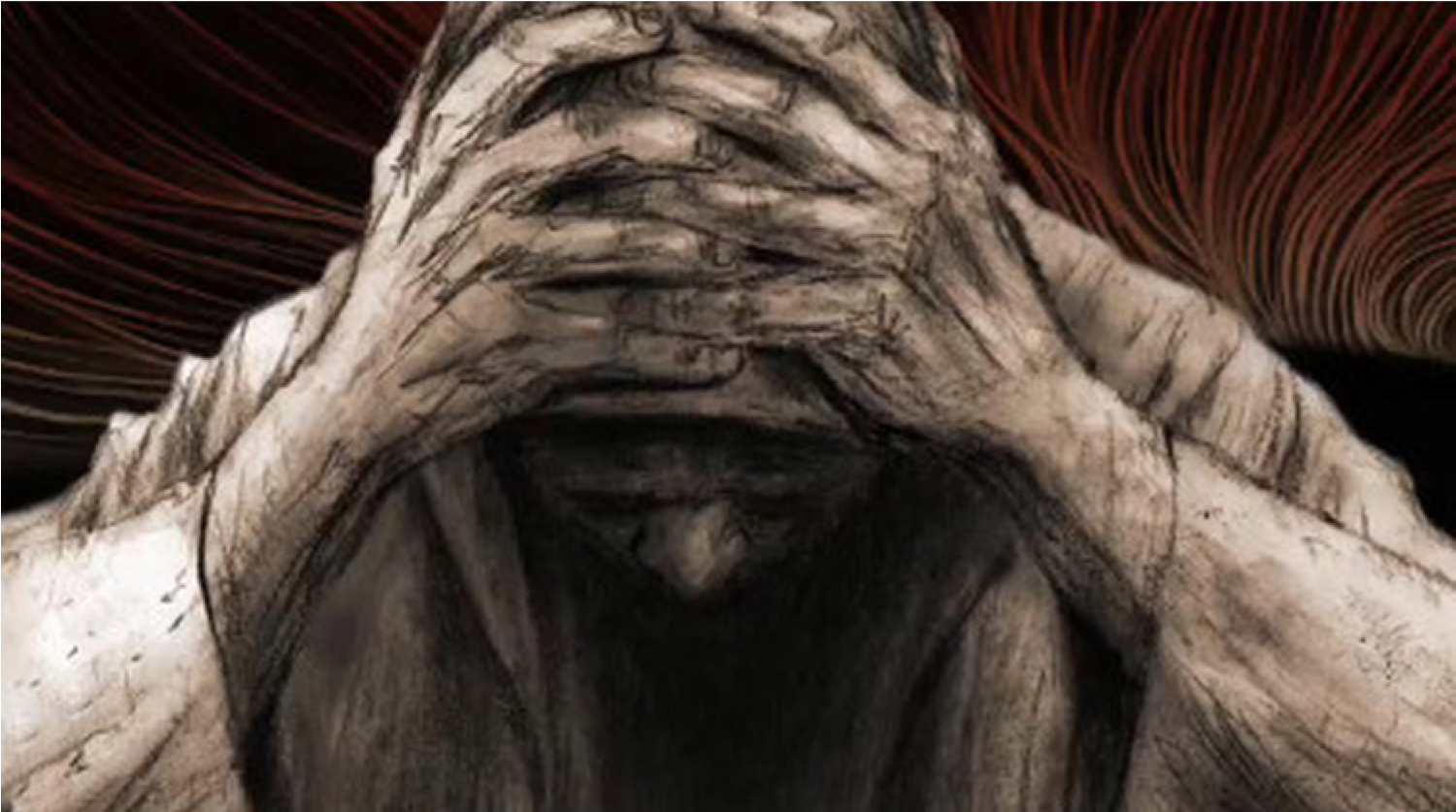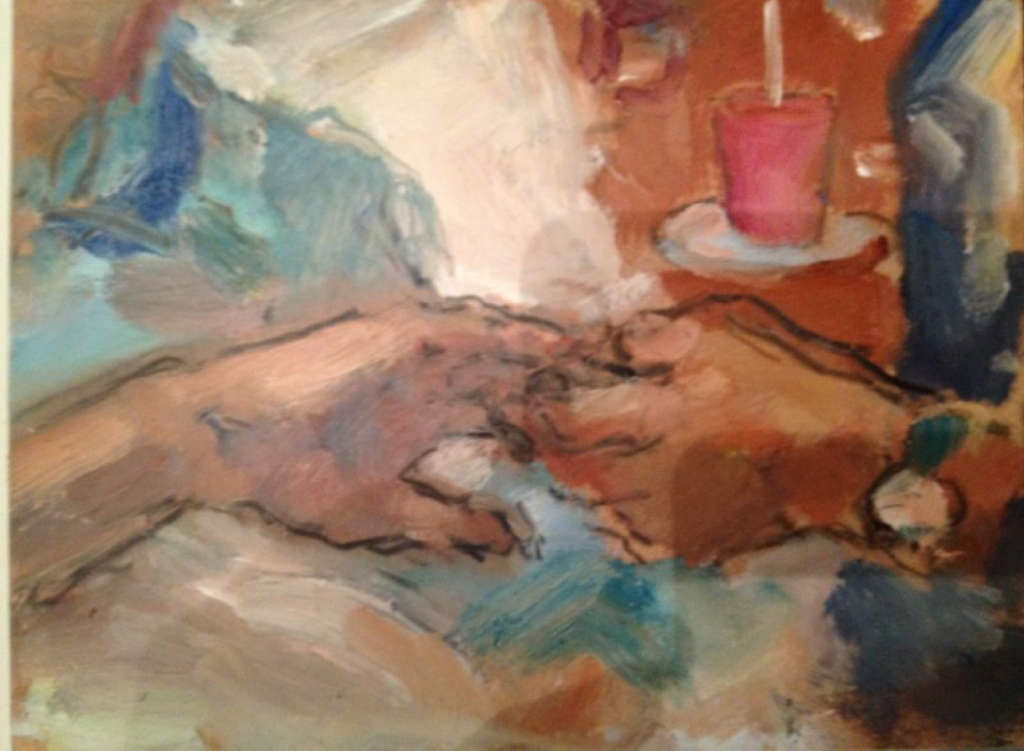Second century Church Father St. Irenaeus of Lyons famously wrote, “The Glory of God is a human being fully alive.” God has called us to be participants in His divine nature, bringing His reconciling life to the world through worship. So, why do we often find ourselves “running on empty,” lacking in inspiration and motivation? How do we get into these dark and difficult spaces, and how do we find our way back to intimacy with God? And, how do we continue to lead our congregations in worship with authenticity and Godly passion through challenging circumstances?
To some extent probably all of us have been spiritually empty, dry, dull, devoid of joy, devoid of life, frustrated, unhappy, discontent, completely out-of-sorts with God, with our families, with our brothers and sisters, seemingly out-of-sorts with the entire world, and, more to it, even out of sorts with ourselves. Consider the spiritual state of the Psalmist in Psalm 88. Let’s look at the Psalm together. Enter into the pathos of the writer.
Psalm 88 Domine, Deus
by day and night I cry to you.
incline your ear to my lamentation.
my life is at the brink of the grave.
I have become like one who has no strength;
like the slain who lie in the grave,
for they are cut off from your hand.
in dark places, and in the abyss.
and all your great waves overwhelm me.
I am in prison and cannot get free.
LORD, I have called upon you daily;
I have stretched out my hands to you.
will those who have died stand up and give you thanks?
your faithfulness in the land of destruction?
or your righteousness in the country where all is forgotten?
in the morning my prayer comes before you.
why have you hidden your face from me?
I have borne your terrors with a troubled mind.
your terrors have destroyed me;
they encompass me on every side.
and darkness is my only companion.
-Book of Common Prayer, 1979

When we find ourselves in this spiritual state, awakening like the prodigal son in the pig pen of existence, lost, hungry, discouraged, lonely, how do we get home?
As I have considered this important topic of leading on empty, it seems to me that there are two primary causes of spiritual emptiness or dryness or dullness. The first cause is a result of what we do or neglect to do. In other words, we cause our own spiritual emptiness. We get in the seats of our cars and drive ourselves out into the desert wasteland. Fellow sinners, we all know what this feels like, don’t we? I suspect we have all been there multiple times. If you haven’t, you will be.
The second great cause of spiritual emptiness is a result of what happens to us, what comes upon us through little or no fault of our own. This category falls into the realm of theodicy. Theodicy is generally the study of the problem of suffering and evil in a world created by a personal, providential God of infinite goodness. It’s an attempt to justify God in the face of suffering and evil. While this tends to lean toward an academic study focused on proving the existence of God, theodicy becomes very practical indeed when stuff happens to you: long-term illness, death of a loved one, loss of employment, conflicts in friendships or marriage, oppression, prejudice, tragedies, disasters, even terrorism, etc., whether these circumstances be personal, or in the family, or in the community or society or culture. This, too, we have all experienced, but to varying degrees. My wife and my family and I know firsthand at least some of what it means to suffer—and it is terribly difficult and potentially deeply discouraging.
Whether we find ourselves on empty because of what we have done or not done, or we find ourselves on empty because of what has happened to us, or we are living through some combination of those two, it is helpful for us to define and understand these situations, begin to address the causes, and then continue to lead in and through our brokenness. (Never forget that while we are broken, we are leading broken people as well.)
In the next two blogs I want to explore both of these causes of spiritual dullness. I think it’s helpful to understand what we are dealing with before we look at the way back home. We’ll unpack a bit in this first blog on what we do to cause spiritual emptiness, and in the second blog, we’ll focus theodicy, or what happens to us to cause spiritual emptiness.
Let’s begin with the first cause of spiritual dryness: what we do or neglect to do. To be blunt, we are talking about sin, fellow sinners. Sin is not just participation in overt evil, although it certainly can be that. More often, perhaps, sin is an even more insidious twisting or perversion of the good.
St. Thomas Aquinas gave us what I think is a very helpful categorization of addictive desire. St. Thomas uses the term concupiscence for addiction. Concupiscence is taking good desires and letting them get out of hand, becoming addictions. St. Thomas Aquinas put these addictions into four basic categories: money, power, pleasure and honor/fame. While there is nothing wrong inherently with any of those four, money, power, pleasure or fame, an inordinate desire for any of those will become sin. All sin can be boiled down to these four areas, all of which “miss the mark” of God’s righteousness and fall short of his glory. That is the definition of sin. Or, St. Augustine defined it, sin is incurvatus in se, being curved in upon oneself, much like the depiction of Satan in Dante’s Inferno.
Why are these sins so addicting? Our culture and our sin nature leads us to believe (wrongly) that these four addictions will help us to flourish as human beings, or more to it, be finally satisfied. Our lives will improve if we are content and satisfied. More money and more stuff leads to a happier, less stressful life, right? More power allows us to exert our influence on others, and who knows better what is good for others than us? More pleasure makes life happy and fulfilled. More fame strokes our egos and assures us that we will be remembered when we are dead and gone. We will have left our mark. Here is the twist: these four desires are not inherently bad when they are kept in balance, or in check. There is nothing wrong with having some money to use for Kingdom purposes, some power to influence societal good and secure human rights, some pleasure to help us laugh and make us and others happy, and some fame so we can leave a legacy of righteousness. But these four desires can easily become inordinate, taking the place of God and our dependence on God, or taking the place of faith, family, community involvement, caring for the poor, working a job that contributes in some way to societal good. When money, power, pleasure and honor become disordered, or ordered toward the self, then we no longer flourish and become depressed, unhappy, joyless, and empty. In fact, we become addicted to getting more money, more power, more pleasure and more honor, because addictive sin is a ravenous beast and necessarily leaves us dissatisfied, wanting more.
 Why are we dissatisfied? St. Augustine wrote about our common longing for God. He said “You have made us for yourself, and our hearts are restless until they can find rest in you.” Our only true satisfaction is found in God. When we try to fill our innate longing for God with something infinitely less than God, we end up necessarily frustrated and dissatisfied. Sin promises satisfaction, but only God can truly satisfy the deepest longings of our hearts.
Why are we dissatisfied? St. Augustine wrote about our common longing for God. He said “You have made us for yourself, and our hearts are restless until they can find rest in you.” Our only true satisfaction is found in God. When we try to fill our innate longing for God with something infinitely less than God, we end up necessarily frustrated and dissatisfied. Sin promises satisfaction, but only God can truly satisfy the deepest longings of our hearts.
What is the way out of addictive sin? First, know that we cannot save ourselves. We are helpless. The church has always stood against all programs of human perfectibility, all Pelagian heresies. When we accept by faith that grace that's been extended to us we are indeed saved. We are saved from death and the power of sin and hell, and we are also saved to full participation in the divine life of God.
Then, knowing that, repent. The Greek word for repentance is metanoia. Metanoia literally means to change the mind or go beyond (meta) the mind (nous). It means much more than just being sorry or sad for our sin. Rather it indicates an elevation of the mind to God, to be changed and renewed and converted (Tertullian) through trusting in the work of Christ.
Historically, the Church has assigned practical actions to repentance, sometimes called acts of penance or mercy. Think of your kids, if you have kids. Or think of when you were a kid. It’s really not enough for children to say “I’m sorry.” Parents who do only that are in for a future battle, or even a war! If the “perp” is truly contrite, after the “I’m sorry,” come appropriate acts of penance, learning to do the right thing by practicing the right thing, whether that’s sitting and contemplating the wrong (as I did, a lot), or making restitution, or doing some intentional good works to relearn the right behaviors. (Remember, practice makes permanent!)

Here are some practices: Give to the poor, love your neighbor as yourself, visit the sick, feed the hungry, clothe the naked, visit the imprisoned, help the oppressed, teach the ignorant, counsel the doubtful, evangelize the unbeliever, pray for the sick, comfort the sorrowful and widows, give shelter to the homeless and refugees. When you do these things for the very least of society, you do it for God. Mother Teresa said that is the summary of the Gospel: “You did it to me.”
Practice righteous living, practice selfless love and acts of love, but do so in the power and life of Jesus the Christ.
In my next blog we will touch on the topic of theodicy.
In the name of the Father, and of the Son, and of the Holy Spirit.
Read Part 2
Very constructive and so useful. So many times we can fall into the trance-like stupor of neutralized spiritual paralysis and just “exist” there. I heard a pastor say long ago we always spiritually fit into one of three categories in these regards: energized, neutralized or vandalized. Acts of worship and acts of penance can be so catalytic in moving us from vandalized or neutralized to energized. Thanks, Jim!
Btw – what is the source of the wonderful watercolor in this piece?
Good thoughts! Thank you, Darrell. Sam will likely know the source of the watercolor.
It looks like its is from “The Seven Works of Mercy” project by Ghislaine Howard (info: http://ghislainehoward.com/the-seven-works-of-mercy-ghislaine-howard/) but I got it from Jim ?
-sam